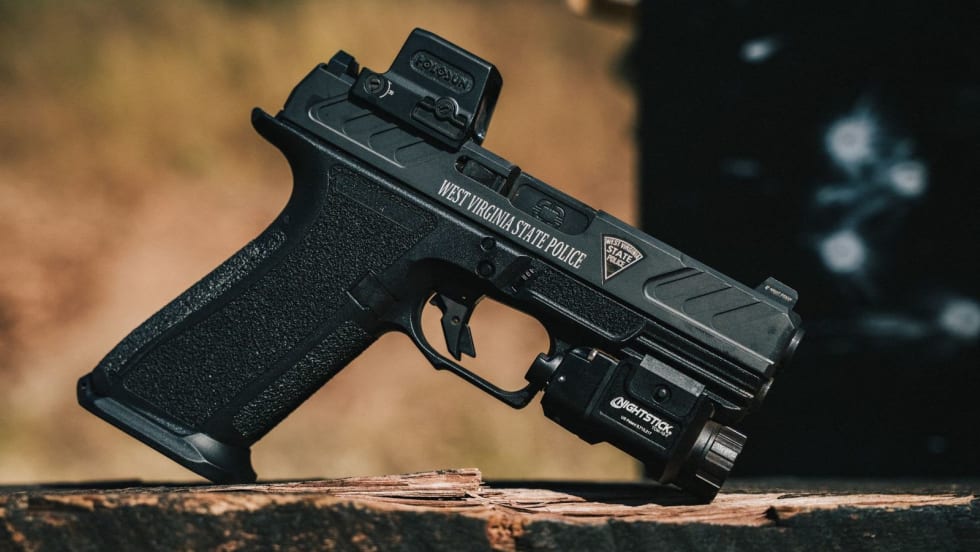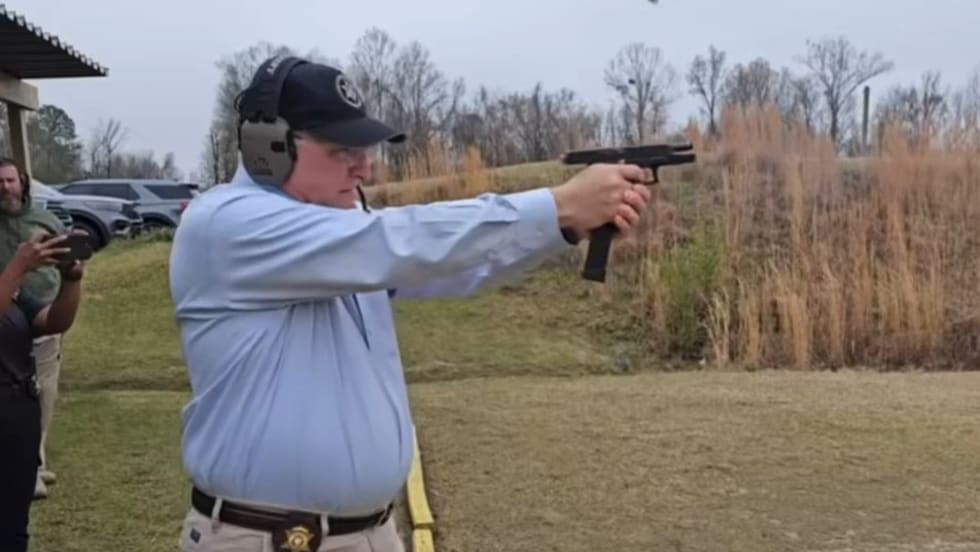Lately, the legal limits on gun possession by both police and private individuals have come under judicial scrutiny. Two matters in particular bear a closer look.
LEOSA Precludes State Prosecution
Before traveling to another state where you intend to carry off duty, do a little research and inquire about local laws regulating firearms possession on private property.

Lately, the legal limits on gun possession by both police and private individuals have come under judicial scrutiny. Two matters in particular bear a closer look.
LEOSA Precludes State Prosecution
In 2004, Congress enacted the Law Enforcement Officers Safety Act, also known as House Resolution 218. As codified in Title 18 of the US Code, sections 926B (active-duty officers) and 926C (retired officers), provide that with some exceptions, law enforcement officers are entitled to carry their firearms off duty in every state, notwithstanding state statutes restricting the carrying of firearms by the general citizenry. (See the full discussion of the text of the law in Point of Law, POLICE Nov. 2004.) This law was recently applied in a highly publicized case to prevent police officers from being prosecuted under state law.
State v. Smith
In the summer of 2008, the City of Sturgis, S.D., hosted the 68th annual Sturgis Motorcycle Rally. The one-week event draws motorcycle clubs from throughout the country. Members of the Iron Pigs Club, made up of motorcycle-riding law enforcement officers and firefighters, were in town when several of their number, including two police officers from Seattle visited the Loud American Roadhouse tavern on August 8. A confrontation broke out between several Iron Pigs and some Hells Angels, resulting in non-fatal shootings.Following an investigation, it was determined that the Seattle officers had been carrying concealed handguns. South Dakota law prohibits carrying concealed firearms without a permit, and also prohibits possession of firearms in an establishment where alcohol is sold. The State's Attorney obtained grand jury indictments charging the officers with violating state law. (A wounded Hells Angel was also charged with aggravated assault.)
The officers asserted a bar to prosecution, arguing that the Supremacy Clause of the U.S. Constitution makes federal law paramount over conflicting state law, precluding state prosecution. South Dakota Circuit Judge Warren Johnson agreed and dismissed the charges. In his memorandum opinion the judge wrote, "While states retain the right to prohibit the possession of firearms on government property and to permit private persons and entities to prohibit the possession of firearms on their property, they cannot restrict qualified law enforcement officers in any other manner."
The decision in this case is not binding precedent for deciding other cases, either in South Dakota or in other states; however, it does illustrate the approach state courts may be expected to take if other prosecutors seek to charge officers with firearms violations in conflict with the federal law. The outcome in this case might also influence prosecutors' decisions when considering state-law charges that would be barred by the LEOSA.
[PAGEBREAK]
Precautions
Because there are 50 states with 50 sets of firearms statutes, the decision in the Smith case does not amount to a green light for officers to carry their firearms wherever they please. As the judge's comment makes clear, states can permit private entities to prohibit the possession of firearms on their private property. For example, South Dakota could enact a statute making it a misdemeanor to possess a firearm where prohibited by the property owner, with adequate notice (such as a sign prominently posted at all entrances to the property). Off-duty officers could then be prosecuted for carrying their handguns onto the property, because the federal law allows such a restriction.
Before traveling to another state where you intend to carry while off duty, do a little online research, or contact a law enforcement agency in your destination state and inquire about the local laws regulating firearms possession on private property. It's also important to be familiar with the federal statutory provisions that allow states to preclude possession of firearms by officers on government property or parks. Other provisions make the federal authority to carry inapplicable when an officer is under the influence of alcohol or drugs, or when an officer is subject to pending disciplinary action. Retired officers are subject to additional restrictions, as listed in the above mentioned 2004 Point of Law article.
Second Amendment Developments
Just a few weeks before the Sturgis roadhouse confrontation, the U.S. Supreme Court issued a landmark Second Amendment opinion, District of Columbia v. Heller. State and federal courts continue to litigate the application of that ruling to firearms violations.
DC v. Heller
Dick Heller was a resident of Washington, D.C., who wanted to keep firearms in his home for self-defense. DC laws prohibited handgun possession and required that any long guns kept in the home be locked or disassembled. Heller challenged those laws on constitutional grounds in federal court, eventually landing at the Supreme Court. The High Court ruled in Heller's favor, declaring that the DC bans violated the Second Amendment.
The Supreme Court held that the Second Amendment right "to keep and bear arms" is an individual right, not just a right of state militias. Historical precedent indicated that the chief reason for enactment of the Second Amendment was protection of a right to use firearms in defense of the home. Since the DC bans would thwart the ability of residents to readily defend themselves in their homes, they were held unconstitutional.
[PAGEBREAK]
Second Amendment Exceptions
In the few months since it was issued, the Heller decision has repeatedly been invoked in defense of various firearms charges around the country. Criminal defendants have sought to use Heller and the Second Amendment to fight charges of illegal possession. So far, lower courts have not refused to enforce longstanding prohibitions on concealed firearms or the possession of weapons by convicted felons and certain others, or on the possession of unconventional dangerous weapons such as machine guns and sawed-off shotguns.
Foreseeing that challenges would arise, the Supreme Court affirmed in Heller that such restrictions would not violate the Second Amendment. Said the court, "Like most rights, the Second Amendment right is not unlimited. It is not a right to keep and carry any weapon whatsoever and for whatever purpose. For example, concealed weapons prohibitions have been upheld under the Amendment or state analogues.
"Nothing in our opinion should be taken to cast doubt on the longstanding prohibitions on the possession of firearms by felons and the mentally ill, or laws forbidding the carrying of firearms in sensitive places such as schools and government buildings, or laws imposing conditions on the commercial sale of firearms." (DC v. Heller)
Citing this language, federal appeals courts have ruled that the Second Amendment is not violated by laws forbidding convicted felons from possessing guns (U.S. v. Irish), nor by prohibitions on the possession of machine guns (U.S. v. Gilbert), nor by bans on sawed-off shotguns. (U.S. v. Fincher) State courts have read Heller as allowing punishment for carrying a concealed firearm. (People v. Flores) So while Heller has upheld the right of law-abiding individuals to possess handguns and unlocked long guns in the home for self-defense, most weapons-violations statutes will remain enforceable.
Changing Times
Obviously, laws affecting the possession of firearms by both law enforcement officers and civilians are undergoing revision and challenge. It's important for officers to keep updated on the developments with ongoing training and research. Local prosecutors and legal advisers should be consulted as to specific issues in your jurisdiction.
Devallis Rutledge is a former police officer and veteran prosecutor who currently serves as Special Counsel to the Los Angeles County District Attorney. He is the author of 11 books, including "Courtroom Survival, The Officer's Guide to Better Testimony."

What if Level I retention didn’t require a full duty rig? Safariland’s Solis delivers trusted ALS security in a streamlined OWB platform built for administrative and plainclothes professionals who need protection without the bulk.
Read More →
With new funding, Wrap Technologies will restart domestic manufacturing, advance validated R&D programs into commercialization, and responsibly accelerate early growth initiatives aligned with rising demand for non-lethal response capabilities.
Read More →
This year, Streamlight marks two decades of weapon-mounted lighting innovation with the 20th anniversary of the TLR-1.
Read More →
Steiner Optics’ T1Xi was selected as the top-performing red dot in the recent Texas Department of Public Safety optic evaluation.
Read More →
Shadow Systems will provide 700 XR920 crossover pistols for West Virginia State Police troopers and 80 CR920X high-capacity subcompact pistols for the Bureau of Criminal Investigation.
Read More →
Aimpoint is marking its 50th anniversary in 2025, celebrating five decades of red dot innovation trusted by military, law enforcement, and tactical professionals worldwide.
Read More →
“Our newest weapon light provides an industry-leading level of candela for handguns, giving users enhanced visibility under low light conditions, such as when searching a dark alley,” said Streamlight President Michael F. Dineen.
Read More →
This device by itself, regardless if it is installed on a slide or not, is classified by the ATF to be a machine gun, which is illegal to possess,” the Bibb County Sheriff’s Office said.
Read More →
The police department says the largely enclosed new facility will reduce the noise from the shooting range, also used by bomb squad trainees and Correction officers, which has been active since 1960.
Read More →
The legislation would permit LEOSA-qualified officers and law enforcement retirees to carry in state, local, and private property otherwise open to the public; national parks; certain federal public access facilities; and school zones.
Read More →